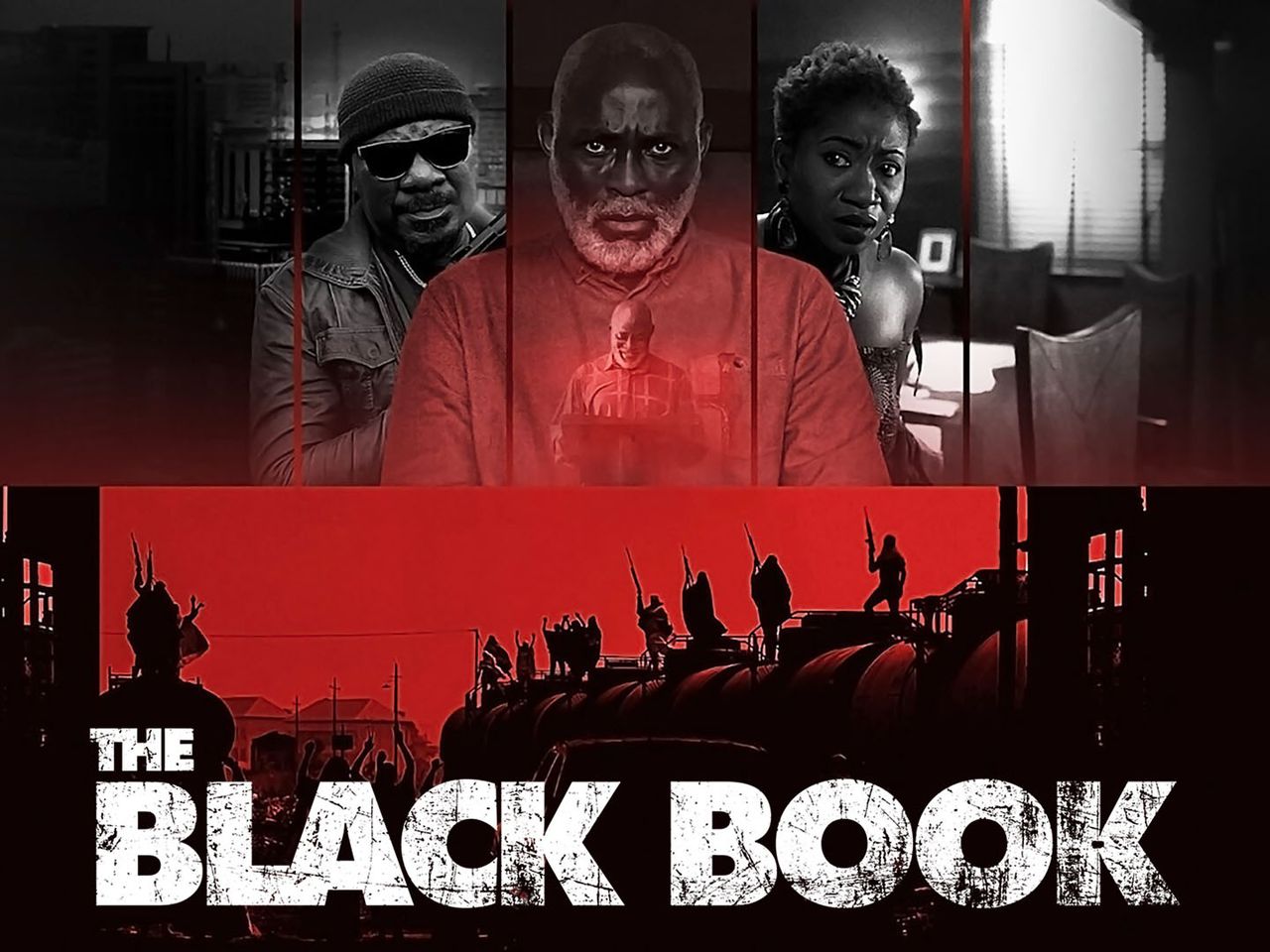In the world of Nollywood, where creativity knows no bounds, ‘The Black Book’ is a gripping crime thriller that has taken the film industry by storm since its Netflix release in September 2023. This movie defied all odds with a ground-breaking budget of $1 million and nearly four years of production.
What however sets it apart isn’t just the investment, it’s the captivating narrative, the exceptional cast and the stark relevance to modern times.
The film boasts of veteran actors likes Richard Mofe Damijo (RMD), Sam Dede, Norbert Young, Bimbo Akintola, Femi Branch and Patrick Doyle, among many others.
RMD’s portrayal of Paul Edima, the lead character seeking vengeance for his son’s murder, stands out. He shared how he was drawn to the role. The role required significant physicality, prompting RMD to undergo rigorous training, including stunts with experts and military training with active U.S Marines. Despite the challenges of COVID, his dedication shines through.
Further elaboration
Speaking on casting, the film’s director, Effiong emphasized the importance of casting the right actor for the pivotal role of Paul Edima, the lead character. He spoke of the need for believability, explaining that not just anyone could embody this character. The actor had to be the right age and fit the role perfectly. The director’s commitment to authenticity and attention to detail shined through in his comments.
Effiong’s dedication extends to every facet of the film, from the fight sequences to the small details, all in the pursuit of simplicity and authenticity.
In reflection Effiong said, ‘’The book had 38 new sets built from scratch and they were taken down afterwards.” He also expressed regret that Pat Nebo, the film’s production designer, did not live to see the project come to fruition. ‘’Nebo’s contribution to the film was undoubtedly significant, and his absence is deeply felt.”
The use of realistic explosions in the movie is one noteworthy detail that Effiong discusses as he described the careful planning that went into these explosive scenes. He and his team took numerous precautions to ensure safety and compliance with the law, obtaining permission from various military and law enforcement agencies. Local radio stations were even used to raise awareness about the controlled explosions.
Effiong also opened up about a significant challenge he faced during the film’s production. On day 48, just after everyone returned from a COVID-related break, a pivotal explosion scene failed. The disappointment left Effiong deflated, a rare occurrence for a director known for his resilience. However, he didn’t stay defeated for long. The following morning, he devised a new plan, split the team into two groups to shoot different scenes simultaneously, and ultimately decided to reshoot the explosion scene. To make it happen, he even contributed his personal funds. The determination paid off and the successful explosion became one of the most memorable moments on set, marking a turning- point and a testament to the director’s unwavering commitment.
In his remarks, Editi also highlighted that the book has recently achieved a prominent position among the top trending content in South Korea. This achievement, he said, underscores the increasing demand for African narratives and prompts the need to accelerate the release of stories initially planned for the future.
“It signals a shift from crafting stories exclusively for local markets to creating narratives that can resonate globally. This shift also opens doors for larger budgets and more daring storytelling endeavors.”
The vision involves substantial investments in crafting top-tier narratives that extend beyond Nigeria’s borders, reaching a worldwide audience. Streaming platforms play a pivotal role in swiftly sharing these stories with international viewers, a long-held aspiration of the Nollywood industry. The overarching mission is to become the storytellers for the next generation of African narratives, commencing this journey from Nigeria. The commitment lies in presenting these narratives with unwavering excellence, encompassing exceptional visuals, enthralling music, and world-class trailers that meet global standards.
The ‘Black Book’ is one of the first Nigerian films to reach number one on Netflix worldwide, and it has done so for a variety of reasons.
In summary, ‘The Black Book’ has become a global hit due to its combination of talent, dedication, high production values, universal themes, and the ability to overcome challenges, all of which resonate with audiences beyond Nigeria’s borders.
What makes the book to resonate with many Nigerians is its narrative that sheds light on societal issues. It boldly confronts incidents like racial profiling and wrongful convictions, where young men are often unjustly targeted due to their appearance. The film’s portrayal of these issues strikes a chord with the audience, reflecting the stark realities faced by many in Nigeria.
A transformative moment for Nollywood
In a country where movies often hold a mirror to society, ‘The Black Book’ stands as a powerful testament to the evolution of Nollywood. It’s a compelling crime thriller that not only entertains but also compels us to examine the social issues that plague the nation.
The film’s success on Netflix and its impact on the audience illustrate that Nollywood is entering a new era of storytelling, where narratives are not just for entertainment but also for empowerment and change. With ‘The Black Book’, Nollywood proves once again that it can tell stories that captivate, entertain, educate and inspire change while pushing the boundaries of cinematic excellence.
Ever since its release, it has ignited a whirlwind of excitement and discussion on social media platforms. Users from around the globe have flocked to these platforms to pour out their heartfelt appreciation for the film and showcasing the depth of its impact.
Chidi-Maha, an arts enthusiast writes from Lagos




